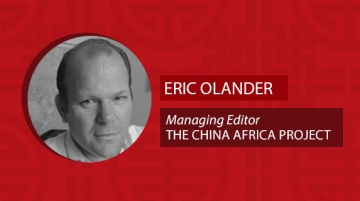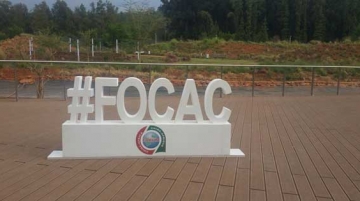The 6th Forum on China Africa Cooperation is coming at a crossroads in the China-Africa relationship. China’s shift from a manufacturing to a consumption economy means that it is importing fewer African commodities. On the African side, this shift has led to fears about repaying Chinese debt, and a general downsizing of African growth expectations. Coupled with a reported plunge in Chinese investment on the continent, the current situation seems to invoke warnings from the boom era, when figures as diverse as Lamido Sanusi and South African President Jacob Zuma called the relationship problematic and unsustainable.
However, being at a crossroads isn’t the same thing as being on a cliff. FOCAC 6 has the potential to move the China-Africa relationship to a more sustainable path. However, a more sustainable relationship will also require African governments to get out of their comfort zone.
Ivory: China was widely praised for announcing possible bans on the importing of ivory earlier this year. Since then, the world has waited impatiently for details and the enactment of actual policy. If Chinese leaders announce a comprehensive ivory ban at FOCAC 6, it will act as an acknowledgement that wildlife trade has become a central problem in China-Africa relations. Taking it seriously won’t only attack demand on the Chinese side, it could also force African governments to address their own lapses in governance that allowed poaching to flourish.
Investment: The 84% plunge in Chinese investment in Africa is indeed alarming. With it comes indications that the the fall pushed China back to its core investment strategy: African raw materials. Chinese investment in African minerals, metals and oil actually rose during the first half of 2015. That said, the shift towards domestic consumption has the potential to open up new forms of demand for African raw materials, which could fuel new investments. This is particularly true if Chinese customers embrace greener technologies that demand African rare earths and platinum. The challenge for African governments is finding a way to move beyond trading raw minerals.
Trade: While investment has plunged, Chinese trade with Africa is on the rise, despite its recent downturn. Trade is expected to hit $300 billion this year. While the influx of Chinese-made goods worry African producers, African consumers are gaining. This isn’t only good for African household budgets, it could be good for African societies generally. China exports cheap mobile phones and solar power generators. These two products alone can radically improve connectivity and power independence in societies wits faulty infrastructure. As China increasingly offshores production, this trade can lead to Chinese companies setting up manufacturing and assembly plants in Africa to serve African markets.

